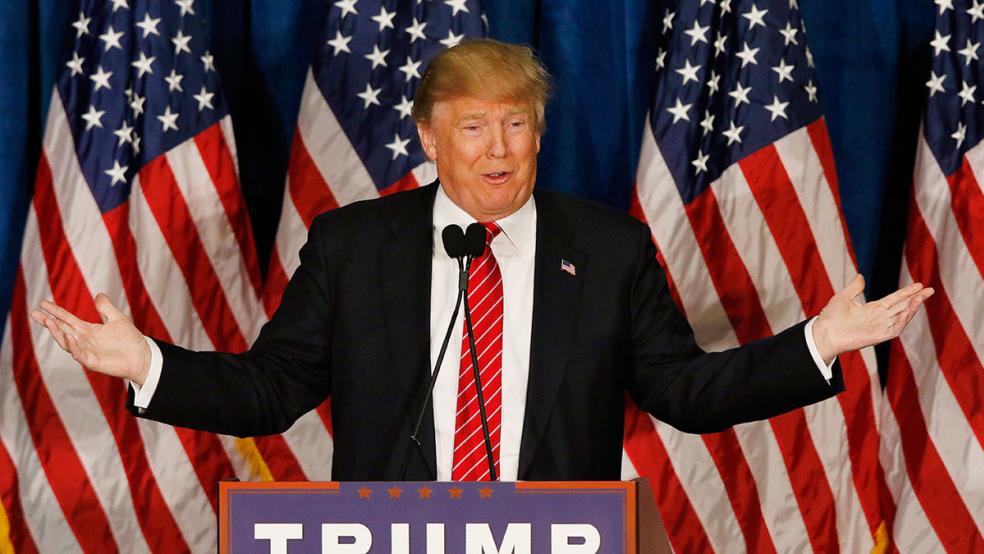Assume for a moment that somehow, between now and November, the presidential election becomes a real discussion about policy rather than a constant whiplashing from outrage to scandal and back again. As always, the economy will be one of the central issues and of course the candidates will do their best to paint a picture of the United States that best suits their needs.
For Democrat Hillary Clinton, it will be an optimistic portrait that promises continued growth and reduced inequality. Republican nominee Donald Trump will paint a much, much darker picture, casting the U.S. as a bombed-out economic wasteland that he -- and only he! -- can restore to its former glory.
Related: Is Trump Finished? Don’t Bet on It
At the moment, the real-world evidence -- for those who continue to care about such an antiquated concept -- comes down in Clinton’s favor, though not by much.
The Bureau of Labor Statistics today released its monthly jobs numbers, and found that an estimated 255,000 jobs were created in the month of July. It also revised the results from May and June upward by a total of 18,000 jobs, bringing the three-month average to 190,000.
Unemployment remained steady at 4.9 percent, and hourly wage growth has risen 2.6 percent so far this year.
However, other economic data points offer reasons for concern. The recently-released GDP numbers showed an economy that is still growing, but only at a sluggish 1.2 percent annualized pace in the second quarter of 2016. While fewer people are unemployed, millions are underemployed, working part-time jobs when they would prefer full-time work.
Related: Here’s What Happens If Trump Decides to Quit
It’s against this backdrop that Trump, on Monday, will deliver what’s being billed as a major economic address to the Detroit Economic Club. As is the norm, Trump’s statement announcing the address claimed that Trump and Trump alone is capable of rebuilding an economy that was “ruined” by the Obama administration.
“Only he can rebuild the economy, addressing the issue most important to voters with common sense solutions, while preventing Hillary Clinton from amplifying and expanding the failed Obama policies for another four years,” the release said.
The Trump campaign also unveiled a team of economic advisers on Friday morning that is somewhat short of prominent economists, but contains names familiar to the business world, including hedge funders John Paulson and Steven Feinberg and real estate titan Steven Roth.
CNBC contributor and advisor to the Trump campaign Larry Kudlow promised that Trump would be announcing a “very substantial pro-growth” plan on Monday. Rumors have suggested that Trump will tweak a tax plan that many saw as too tilted toward the rich, but few details were available on Friday.
Related: Trump’s Fundraising Surge Sends an Important Message to The GOP
What was available on Friday was a taste of how Trump is likely to talk about the current state of the U.S. economy. A release sent to reporters by Trump senior policy advisor Stephen Miller after the jobs numbers came out Friday was relentlessly negative in its assessment.
“We are in the middle of the single worst ‘recovery’ since the Great Depression. Economic growth is at 1.2 percent - the third straight quarter of less than 2 percent growth. Many workers today are earning less than they did in 1970, and household incomes are down nearly $2,000 under the Obama Administration.”
It continued, “The economy the media and the Clinton Machine is describing is an economy that doesn't exist for most Americans - it's an economy enjoyed by her donors and special interests, and one suffered through every day by millions of Americans.”
The challenge for both candidates going forward is fairly straightforward. Clinton will try to convince voters that things are better than they actually are, while team Trump will argue that they are much, much worse.
That is, of course, all contingent on a race that has been mostly about personalities finding its way back to policy questions before it’s all over.





